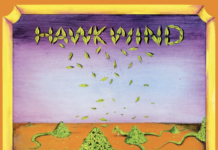Review By David Lamb
Wrecking Ball is an angry album, and the subject of its wrath is one that Springsteen has covered before: the life-destroying effects of an economic depression inspired the dark and minimalistic 1982 record Nebraska, a solo effort put down solo in a garage, with only a 4-track recorder and a few instruments. Whilst that record is a desperate cry into darkness, Wrecking Ball is a rallying call. Springsteen is pissed, and he is raising the cavalry to tell the world.
And what an army it is. Something that is instantly noticeable upon listening to the album is that it is not an E-Street Band record. Indeed, the album credits list around fifty musicians and contributors, including mainstays from the E-Street, gospel choirs, the sessions band and guest appearances such as Tom Morello. The protest folk of The Seeger Sessions can be felt as a clear influence, pushing Springsteen’s recognisable brand of rock into new territories. Unsurprisingly for an album requiring such levels of collaboration, Wrecking Ball has extremely high levels of production, beyond anything done before in Springsteen’s career. For the most part, it works brilliantly, allowing the myriad of styles to blend. Once or twice, it stands out, for instance on the song “Rocky Ground”, in which an overuse of sampling is a bit too obvious and out of place with the big band feel of the rest of the album. If this song had been the only single, it would have been a worry that an old great had lost their marbles trying to change their sound to something current. Thankfully, it can be passed by as a curious experiment.
In terms of song writing, Wrecking Ball represents the best work from Springsteen in about ten years. The polished melodies seen in the last few efforts are present here, but the agenda behind the album fuels the music with a meaning and purpose that has been lacking. The album opener “We Take Care of Our Own” is unashamedly designed to ease in listeners. It’s straight up easy rock, opening comfortably before the album launches into energy of its first half: part blues, part folk, part rock, all angry. “Shackled and Drawn” puts string behind a sing-along anthem portraying the working man as a convict taking out labour by punishment, “Death to My Hometown” does the same with destruction of a community through economic ruin. The riffs are simple, yet surrounded by an orchestras worth of sound; pieces that are inviting voices to be joined to their own.
The second half of the album is slightly more traditional, and slightly more hopeful. The eponymous track “Wrecking Ball” sets a note of defiance notably set along with backing from a horn section for a more traditional E-Street sound. The stand-out of the album however, is “Land of Hope and Dreams”. It would be remiss to talk of this release without noting the sad passing of saxophonist Clarence Clemons, and for many fans his absence may hang over this album, and make the change of musical direction even more notable. Clemon’s solo for this song, recorded before his death, is electrifying. The song has a dual purpose, as a fitting penultimate statement of faith, and change in tone at the close of the album, and a tribute to a band member who was easily as important as Springsteen himself. The song has obviously been re-jigged to work around this saxophone solo as a central point, and it pays off. It is a spine-tingling piece of music, leading into the quiet, contemplative “We are Alive”, closing the proceedings in a haunting fashion.
The album is not perfect. The sheer bombast of the best of the album overshadows many of the smaller songs, and makes them forgettable. “This Depression” in particular, is overly sentimental and shoehorned into the concept of the album. The aforementioned “Rocky Ground” however, is the only true stumble. Lyrically sound, it’s spoilt by an overuse of sampling and an ill-fitting rap bridge. Yes, you read that right.
Wrecking Ball is an important record that analyses and attacks the current economic and ethical problems of the western world, and is easily one of the strongest releases of 2012. Purists may dislike the departure from tradition; others may be put off by the heavy influence of classic American protest music. However, the sheer power of the record merits it a listen. There are few artists that could reach seventeen albums, and fewer still that could make that seventeenth album in a career spanning nearly forty-five years as different as this one. Whether a fan or somebody who’s never listened to Springsteen, it’s worth picking up. Now to wait and see where he takes his army next.


















